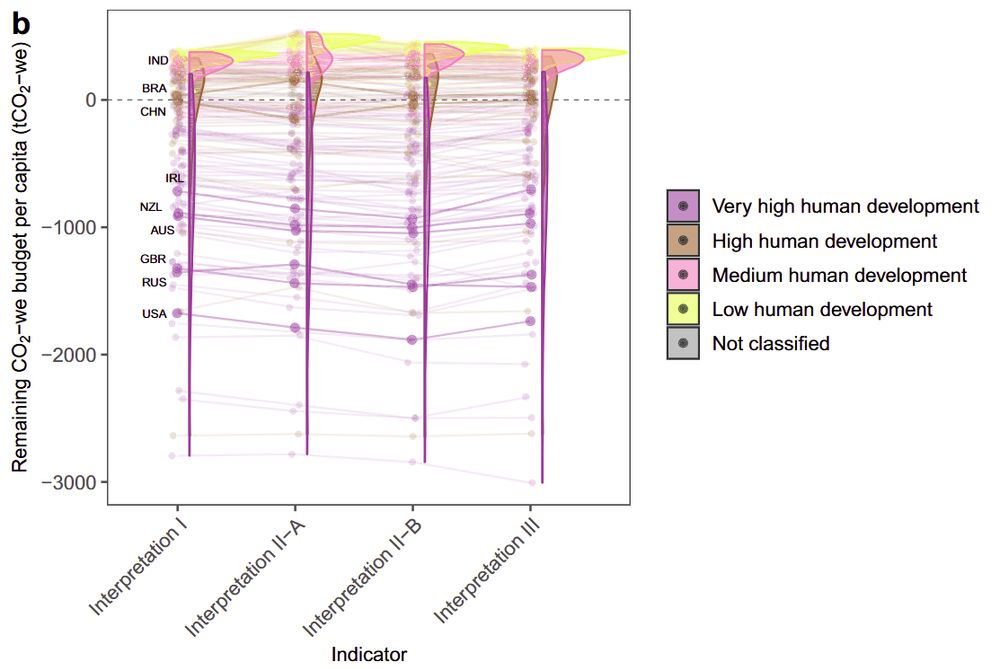
Setu
@setupelz.bsky.social
Equitable energy transitions, regions of the global South and vulnerable communities globally.
Our analysis identifies critical regions where this ‘gap’ is most acute, notably coastal West Africa, Ethiopian highlands, and the Great Lakes region encompassing Kenya, Tanzania, Uganda, Rwanda, Burundi, and the DRC.


May 31, 2025 at 6:56 AM
Our analysis identifies critical regions where this ‘gap’ is most acute, notably coastal West Africa, Ethiopian highlands, and the Great Lakes region encompassing Kenya, Tanzania, Uganda, Rwanda, Burundi, and the DRC.
We combine the Urban Rural Catchment Area (URCA) framework with satellite derived spatial electrification datasets to highlight spatial patterns in electricity access gaps.


May 31, 2025 at 6:56 AM
We combine the Urban Rural Catchment Area (URCA) framework with satellite derived spatial electrification datasets to highlight spatial patterns in electricity access gaps.
Urbanization trends are reshaping human settlement patterns and energy needs. Our recent (open access) work, led by Jessica Kersey and Samuel Miles, explores these dynamics across countries in Sub-Saharan Africa 🧵


May 31, 2025 at 6:56 AM
Urbanization trends are reshaping human settlement patterns and energy needs. Our recent (open access) work, led by Jessica Kersey and Samuel Miles, explores these dynamics across countries in Sub-Saharan Africa 🧵
On net-negative removals: we examine the physical implications of translating carbon debts into drawdown obligations.
We find some evidence of long-term temperature equivalence, but.. high overshoot remains risky. See: www.nature.com/articles/s41...
Avoiding the debt in the first place is better.
We find some evidence of long-term temperature equivalence, but.. high overshoot remains risky. See: www.nature.com/articles/s41...
Avoiding the debt in the first place is better.

March 25, 2025 at 9:22 PM
On net-negative removals: we examine the physical implications of translating carbon debts into drawdown obligations.
We find some evidence of long-term temperature equivalence, but.. high overshoot remains risky. See: www.nature.com/articles/s41...
Avoiding the debt in the first place is better.
We find some evidence of long-term temperature equivalence, but.. high overshoot remains risky. See: www.nature.com/articles/s41...
Avoiding the debt in the first place is better.
Second, we look beyond emissions accounting, to highlight the dual burden transferred to younger generations:
📉 Per-capita carbon drawdown obligations
🌡️ Years of life exposed to 1-in-100-year heatwaves
These diverge sharply across regions and grow worse under a pessimistic current policy scenario.
📉 Per-capita carbon drawdown obligations
🌡️ Years of life exposed to 1-in-100-year heatwaves
These diverge sharply across regions and grow worse under a pessimistic current policy scenario.

March 25, 2025 at 9:22 PM
Second, we look beyond emissions accounting, to highlight the dual burden transferred to younger generations:
📉 Per-capita carbon drawdown obligations
🌡️ Years of life exposed to 1-in-100-year heatwaves
These diverge sharply across regions and grow worse under a pessimistic current policy scenario.
📉 Per-capita carbon drawdown obligations
🌡️ Years of life exposed to 1-in-100-year heatwaves
These diverge sharply across regions and grow worse under a pessimistic current policy scenario.
We demonstrate the relevance of this measure for guiding contemporary climate action by applying it to two scenarios of possible futures:
Current Policies (¬3C), and Announced Pledges (¬1.8C).
First, we illustrate accrued debts and responsibility for overshoot in either case...
Current Policies (¬3C), and Announced Pledges (¬1.8C).
First, we illustrate accrued debts and responsibility for overshoot in either case...

March 25, 2025 at 9:22 PM
We demonstrate the relevance of this measure for guiding contemporary climate action by applying it to two scenarios of possible futures:
Current Policies (¬3C), and Announced Pledges (¬1.8C).
First, we illustrate accrued debts and responsibility for overshoot in either case...
Current Policies (¬3C), and Announced Pledges (¬1.8C).
First, we illustrate accrued debts and responsibility for overshoot in either case...
We illustrate this using the AR6 scenarios database:
Some regions always accrue debt due to past emissions.
Some if they delay net-zero CO2 until late this century.
Some only if they push net-zero CO2 past 2100.
Each case implies different responsibilities for drawdown—and for overshoot harms.
Some regions always accrue debt due to past emissions.
Some if they delay net-zero CO2 until late this century.
Some only if they push net-zero CO2 past 2100.
Each case implies different responsibilities for drawdown—and for overshoot harms.

March 25, 2025 at 9:22 PM
We illustrate this using the AR6 scenarios database:
Some regions always accrue debt due to past emissions.
Some if they delay net-zero CO2 until late this century.
Some only if they push net-zero CO2 past 2100.
Each case implies different responsibilities for drawdown—and for overshoot harms.
Some regions always accrue debt due to past emissions.
Some if they delay net-zero CO2 until late this century.
Some only if they push net-zero CO2 past 2100.
Each case implies different responsibilities for drawdown—and for overshoot harms.
Net-zero carbon debt compares a region’s cumulative CO₂ emissions (past + projected to net-zero) against its fair share of the 1.5°C budget.
Any excess is debt: emissions that need to be drawn down later, making overshoot worse and harder to reverse.
(for a discussion on fair shares - see link👇)
Any excess is debt: emissions that need to be drawn down later, making overshoot worse and harder to reverse.
(for a discussion on fair shares - see link👇)

March 25, 2025 at 9:22 PM
Net-zero carbon debt compares a region’s cumulative CO₂ emissions (past + projected to net-zero) against its fair share of the 1.5°C budget.
Any excess is debt: emissions that need to be drawn down later, making overshoot worse and harder to reverse.
(for a discussion on fair shares - see link👇)
Any excess is debt: emissions that need to be drawn down later, making overshoot worse and harder to reverse.
(for a discussion on fair shares - see link👇)
Comparing our ‘fair warming’ budgets to deepest available domestic reduction (DADR) pathways shows that high domestic ambition is unlikely to be sufficient for many. This underscores a major challenge: the need to address expected breaches through international cooperation (more on this soon...).

January 27, 2025 at 12:02 AM
Comparing our ‘fair warming’ budgets to deepest available domestic reduction (DADR) pathways shows that high domestic ambition is unlikely to be sufficient for many. This underscores a major challenge: the need to address expected breaches through international cooperation (more on this soon...).
We consider three principles: polluter pays, ability to pay, and beneficiary pays, and test how these shift each country’s ‘fair warming’ budget. We also look at different start years for accounting. No matter how you slice it, most developed countries end up with zero or -ve remaining budgets.

January 27, 2025 at 12:02 AM
We consider three principles: polluter pays, ability to pay, and beneficiary pays, and test how these shift each country’s ‘fair warming’ budget. We also look at different start years for accounting. No matter how you slice it, most developed countries end up with zero or -ve remaining budgets.
Why is this work necessary? Well, considering non-CO₂ emissions (like methane) builds a more accurate picture of each country’s warming contribution and enables a better comparison with future pathways. However, there are extensive debates on how to account for these gasses, which we navigate here.

January 27, 2025 at 12:02 AM
Why is this work necessary? Well, considering non-CO₂ emissions (like methane) builds a more accurate picture of each country’s warming contribution and enables a better comparison with future pathways. However, there are extensive debates on how to account for these gasses, which we navigate here.
We explain why these are important, using examples from contemporary NDCs that mention fairness or equity but remain opaque in their operationalisations. To show their application in practice, we conduct a case study for the EU.

January 16, 2025 at 9:10 PM
We explain why these are important, using examples from contemporary NDCs that mention fairness or equity but remain opaque in their operationalisations. To show their application in practice, we conduct a case study for the EU.
The four common entry points we identify and discuss are:
1️⃣Foundational principles – which principles are important?
2️⃣Allocation quantity – what are we allocating exactly?
3️⃣Allocation approach – how is it shared out?
4️⃣Indicators – what data do we need?
(and, what does this mean for all others).
1️⃣Foundational principles – which principles are important?
2️⃣Allocation quantity – what are we allocating exactly?
3️⃣Allocation approach – how is it shared out?
4️⃣Indicators – what data do we need?
(and, what does this mean for all others).

January 16, 2025 at 9:10 PM
The four common entry points we identify and discuss are:
1️⃣Foundational principles – which principles are important?
2️⃣Allocation quantity – what are we allocating exactly?
3️⃣Allocation approach – how is it shared out?
4️⃣Indicators – what data do we need?
(and, what does this mean for all others).
1️⃣Foundational principles – which principles are important?
2️⃣Allocation quantity – what are we allocating exactly?
3️⃣Allocation approach – how is it shared out?
4️⃣Indicators – what data do we need?
(and, what does this mean for all others).
Does anyone have a list of all national (state-owned) oil and gas companies and the country to which they belong? Is this reasonably complete en.wikipedia.org/wiki/Categor... ?

November 29, 2024 at 5:13 AM
Does anyone have a list of all national (state-owned) oil and gas companies and the country to which they belong? Is this reasonably complete en.wikipedia.org/wiki/Categor... ?
The judgement has constitutional law implications as relates to climate, but the court references India’s obligations under their NDCs to the PA (they also refer to the UNFCCC). For a better discussion, see: www.theindiaforum.in/climate-chan...


November 16, 2024 at 8:50 PM
The judgement has constitutional law implications as relates to climate, but the court references India’s obligations under their NDCs to the PA (they also refer to the UNFCCC). For a better discussion, see: www.theindiaforum.in/climate-chan...

